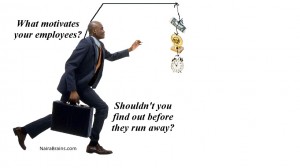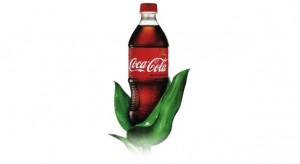The given blog provides “10 Innovative Ways To Reward Your Employees”. This blog raises numerous interesting points, all of which undermine the importance of not only rewarding employees today, but also motivating them for the future. In reading this blog I was constantly reminded of Zappos shoes- simple gestures that acknowledge the effort of workers creates large payoffs for the entire company. On a higher level, I see this blog being intertwined with organizational behavior in the sense that it looks to create unification or a driving force among an entire company. However, I believe the author of this blog undermines the importance that each of the given incentives must be done in moderation. If not properly utilized, the benefits of these incentives can lead workers to make “short cuts” in order to get more rewards, as we have seen with traditional methods of rewarding employees such as cash bonuses. The desire to reap the benefits of a reward can pressure workers into making unethical and ill-motivated decisions. Acknowledging that the innovative reward system created by the author is not immune to such complications is crucial for employers. I believe the author of these ideas is on the right track by looking to create an alternative reward system, but needs to go back and reevaluate the logistics of how these rewards should be carried out to ensure workers do not become motivated for the wrong reasons.
Original blog:
http://www.wisebread.com/small-business/10-innovative-ways-to-reward-your-employees
Photo:
http://nairabrains.com/wp-content/uploads/2011/12/Employee-Motivation.jpg








 Coca-Cola’s inability to produce significant data to justify their claims, combined with their assertive marketing tactics has lead the environmental community, and myself, to condemn the company of an unethical practice known as “Green-Washing”. “Green-washing” is the act of deceptively utilizing “environmentally friendly” practices in order to increase the PR of a company, increasing sales in the process. These unethical practices tie in various aspects of Milton Friedman’s The Social Responsibility of Business to Increase Profits. By dramatizing their efforts to achieve sustainability, the company is attempting to align their ideologies with those of the socially conscious customer. The controversy lies in the deception they are using to announce such a commitment to the environment. The unique twist to this story arises in the fact that “Green Washing” is actually benefiting Coca-Cola as they were recently voted as the “Industry Champion of The Year” at the 2014 Sustainable Bio Awards. As Coca-Cola is technically not breaking any laws, they have the right to “make as much money as possible while still conforming to the basic rules of society”.
Coca-Cola’s inability to produce significant data to justify their claims, combined with their assertive marketing tactics has lead the environmental community, and myself, to condemn the company of an unethical practice known as “Green-Washing”. “Green-washing” is the act of deceptively utilizing “environmentally friendly” practices in order to increase the PR of a company, increasing sales in the process. These unethical practices tie in various aspects of Milton Friedman’s The Social Responsibility of Business to Increase Profits. By dramatizing their efforts to achieve sustainability, the company is attempting to align their ideologies with those of the socially conscious customer. The controversy lies in the deception they are using to announce such a commitment to the environment. The unique twist to this story arises in the fact that “Green Washing” is actually benefiting Coca-Cola as they were recently voted as the “Industry Champion of The Year” at the 2014 Sustainable Bio Awards. As Coca-Cola is technically not breaking any laws, they have the right to “make as much money as possible while still conforming to the basic rules of society”.